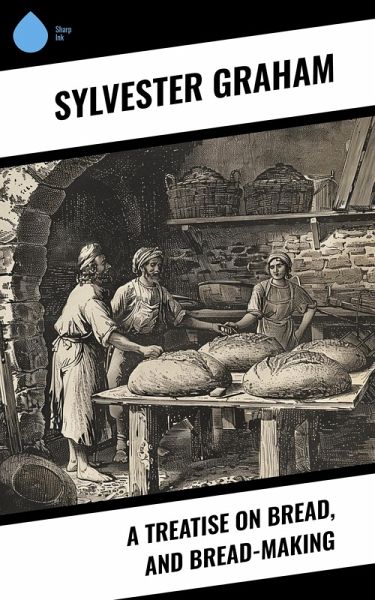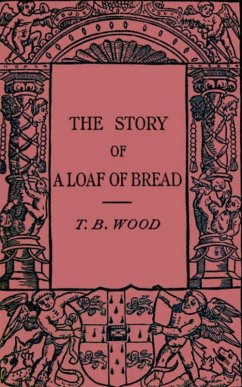
A Treatise on Bread, and Bread-making (eBook, ePUB)
Versandkostenfrei!
Sofort per Download lieferbar
2,13 €
inkl. MwSt.
Weitere Ausgaben:

PAYBACK Punkte
0 °P sammeln!
In "A Treatise on Bread, and Bread-making," Sylvester Graham meticulously explores the nutritional, ethical, and practical dimensions of bread, positioning this staple food at the heart of dietary reform in the 19th century. His text is both prescriptive and analytical, urging readers to consider the inherent qualities of grains, advocating for whole, unrefined ingredients as essential for health. Graham's work not only reflects the burgeoning health movement of his time but also engages with contemporary debates surrounding industrial food production and its impact on human well-being, showca...
In "A Treatise on Bread, and Bread-making," Sylvester Graham meticulously explores the nutritional, ethical, and practical dimensions of bread, positioning this staple food at the heart of dietary reform in the 19th century. His text is both prescriptive and analytical, urging readers to consider the inherent qualities of grains, advocating for whole, unrefined ingredients as essential for health. Graham's work not only reflects the burgeoning health movement of his time but also engages with contemporary debates surrounding industrial food production and its impact on human well-being, showcasing a writing style characterized by clarity, earnestness, and an accessibility that resonates with both lay readers and fellow reformists. Sylvester Graham (1794-1851) was a prominent dietary reformer, known for coining the term "Graham bread." Influenced by the early health and temperance movements, he advocated for a vegetarian diet and sought to illuminate the social and moral consequences of poor eating habits. His own struggles with health significantly informed his philosophies, driving him to explore the link between dietary choices and overall wellbeing, thus providing a robust foundation for his treatise. This book is an invaluable resource for anyone interested in dietary reform, nutrition, or food history. Graham's persuasive arguments and thorough research make it an essential read for health enthusiasts, culinary historians, and those seeking to understand the roots of the modern health food movement.
Dieser Download kann aus rechtlichen Gründen nur mit Rechnungsadresse in A, B, BG, CY, CZ, D, DK, EW, E, FIN, F, GR, HR, H, IRL, I, LT, L, LR, M, NL, PL, P, R, S, SLO, SK ausgeliefert werden.













